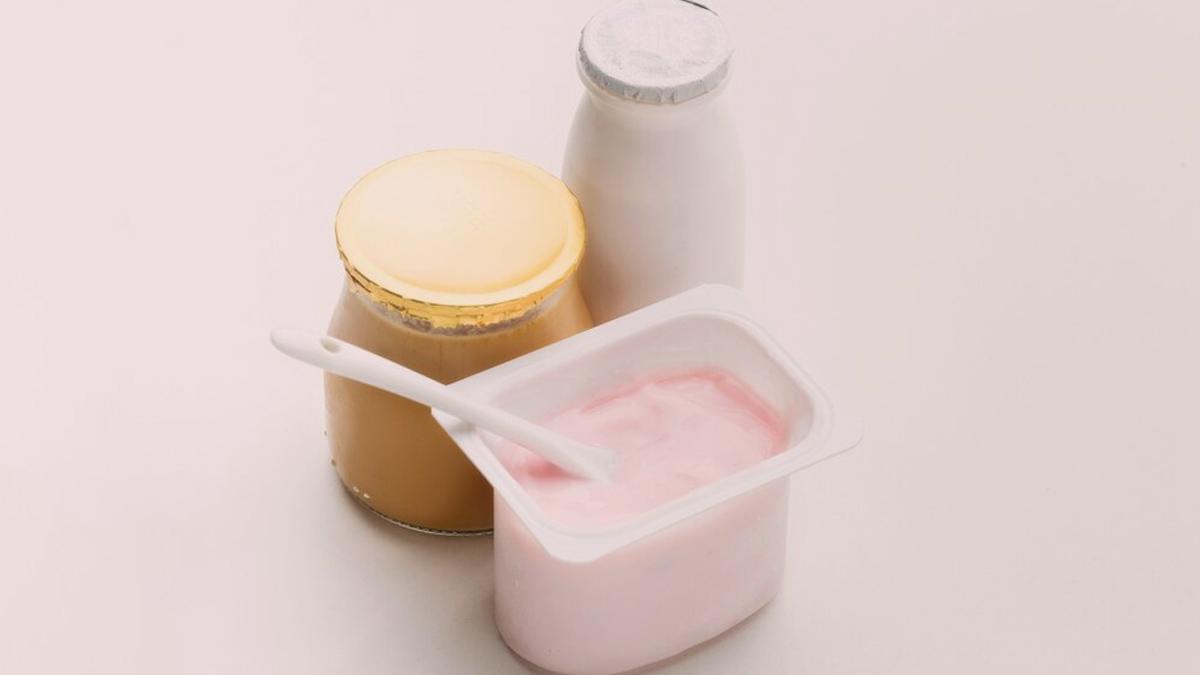
There is nothing more delicious than a cup of yoghurt when it comes to reducing stomach problems, strengthening immunity, and improving bone health. Not only is it rich in calcium, phosphorus, and potassium, but it also contains several vitamins, including vitamins A, B2, and B12. The dairy product also boasts of being an excellent probiotic carrier, which is great for your digestive health.
Table of Content:-
However, when it comes to consuming yoghurt regularly, the question is whether or not it is safe to consume yoghurt found in stores.
Also Read: Your Guide: How To Pick A Good Yoghurt For Your Health
Are Store-Bought Yoghurt Safe?

Dr Preeti Nagar, dietitian at Noida International Institute of Medical Sciences (NIIMS) College and Hospital, NIU, says, "Store-bought yoghurt is generally safe to consume if it is purchased from a reputable source and handled properly.”
However, there are a few factors that need to be taken into consideration before purchasing yoghurt from a store. These include:
- Checking for the expiration date before
- Storing yoghurt in the refrigerator at the correct temperature
- Ensuring that the packaging is intact and not damaged.
- Keep an eye out for bulging lids or broken seals that can indicate spoilage or contamination.
- Read the ingredient list to be aware of any additives or preservatives.
- Checking for quality marks or certifications on the packaging, which indicate adherence to safety and quality standards.
- Observing the yoghurt for any unusual changes in texture, colour, or smell, which can indicate spoilage.
Ingredients To Watch Out For On A Yoghurt Label

While yoghurt is generally safe to consume, it is important to watch out for any additional ingredients that might affect health, dietary restrictions, or preferences. These include:
Added sugar: Look for terms like cane sugar, high-fructose corn syrup, fructose, glucose, sucrose, and other sweeteners. High sugar content can be detrimental to health, especially if consumed in large quantities.
Artificial sweeteners: Ingredients such as aspartame, sucralose, and saccharin may be added to low-calorie or "diet" yoghurts. Some people prefer to avoid these due to potential health concerns or taste preferences.
Artificial flavours and colours: Ingredients labelled as artificial flavours or with specific colour names (like Red 40, Blue 1, Yellow 5) indicate the presence of synthetic additives.
Preservatives: Compounds like potassium sorbate, sodium benzoate, and others are added to extend shelf life. While generally recognised as safe, some people may prefer to avoid them.
Thickeners and stabilisers: Ingredients such as gelatin, pectin, agar, guar gum, and carrageenan are used to improve texture. Some individuals may be sensitive to these additives.
Milk powder or protein concentrates: Skim milk powder, whey protein concentrate, and similar ingredients are used to boost protein content or texture. Check these if you have specific dietary restrictions or preferences.
Non-dairy ingredients: For those with lactose intolerance or dairy allergies, watch out for dairy-based ingredients. Look for yoghurts made from plant-based milk (like almond, coconut, or soy) if needed.
Also Read: From Digestive Health To Lactose Digestion, Here Are Some Health Benefits Of Yoghourt
How To Prepare Homemade Yoghurt?

There is no doubt that homemade yoghurt is more beneficial and effective than store-bought yoghurt. This is because not only do you have full control over the ingredients, but you also get to enjoy the product fresh and for longer periods of time.
To make homemade yoghurt, Dr Nagar shares, “Heat 1 litre of milk and then let it cool. Stir in 2-3 tablespoons of plain yoghurt with live, active cultures. Pour the mixture into a clean container, cover it, and place it in a warm environment for 6–12 hours until it thickens. Refrigerate for a few hours before consuming.”
Conclusion
Store-bought yoghurt is a convenient way to fulfil your probiotic requirements. However, it is important to look for varieties with live, active cultures and lower sugar content. While some processing can reduce probiotic content, proper storage and choosing the right type can still ensure you get a healthy dose of these beneficial bacteria. It is best to choose homemade yoghurt, as the use of ingredients is more controlled and the quality is premium.
Also watch this video
How we keep this article up to date:
We work with experts and keep a close eye on the latest in health and wellness. Whenever there is a new research or helpful information, we update our articles with accurate and useful advice.
Current Version